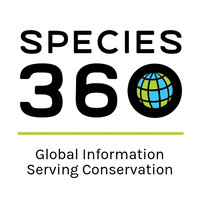Bloomington, MN, USA
Species360 (formerly known as International Species Inventory System or ISIS) was founded in 1974 by 55 Zoos in Europe and the United States. According to its website, its mission is to ‘facilitate international collaboration in the collection and sharing of knowledge on animals and their environments for zoos, aquariums and related conservation organizations’. It rebranded itself as Species360 in 2016, the same year as it welcomed its 1,000th member: totaling zoos, aquariums, educational institutions and regional associations in 90 countries on six continents.
Species360’s Conservation Science Alliance, led by its Director of Science Dalia Conde, conducts population and environmental impact research. Its Zoological Information Management System (ZIMS) determines best practices in caring for individual and groups of species managed by Species360’s membership.
On behalf of CITES, Species 360 manages the Turtle and Tortoise Demographic Trade Database, which compiles life-history data for 194 CITES-listed turtles and tortoises. Species 360 also manages CITES’ Asian Big Cats in Captivity Database and helps CITES track whether protected species were actually bred in captivity or illegally obtained in the wild.
Species360 is an International Champion of the Global Initiative to End Wildlife Crime. Since 2020, Species360 has been trying to persuade CITES to amend its Convention to include, in its words, ‘public and animal health criteria into its decision making, thereby taking a One Health approach to wildlife trade’.
Leaders
Chief Executive Officer Jim Guenter heads a senior management team of six other staff.
Governance
This organization is governed by its members, and some external trustees. They are appointed either in an election system overseen by its Board of Trustees or, in the case of member associations, such as Association of Zoos and Aquariums (AZA), they have a permanent seat on the Board.
Finance
According to one report, Species360’s estimated annual revenue is currently USD 3.3 million per year.


